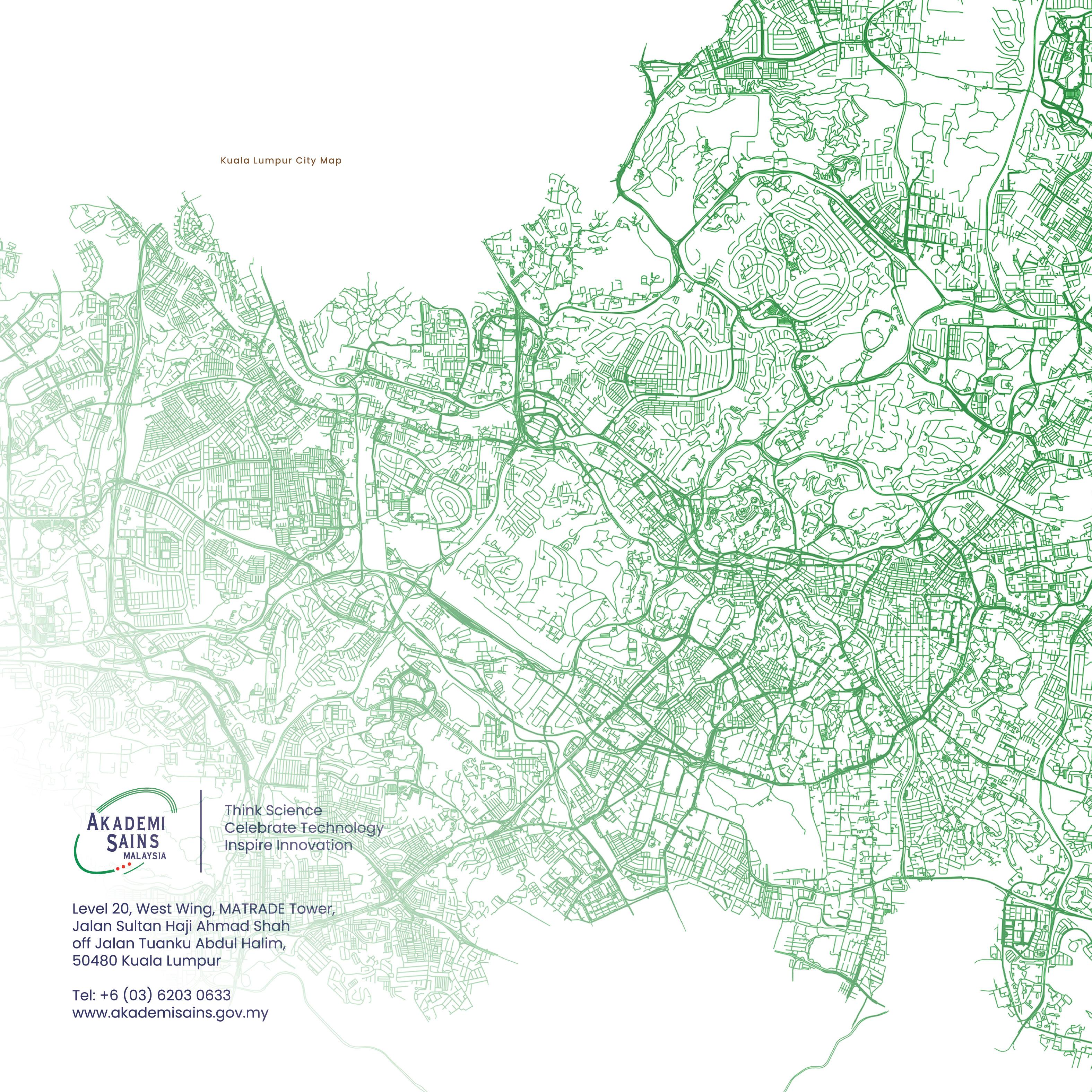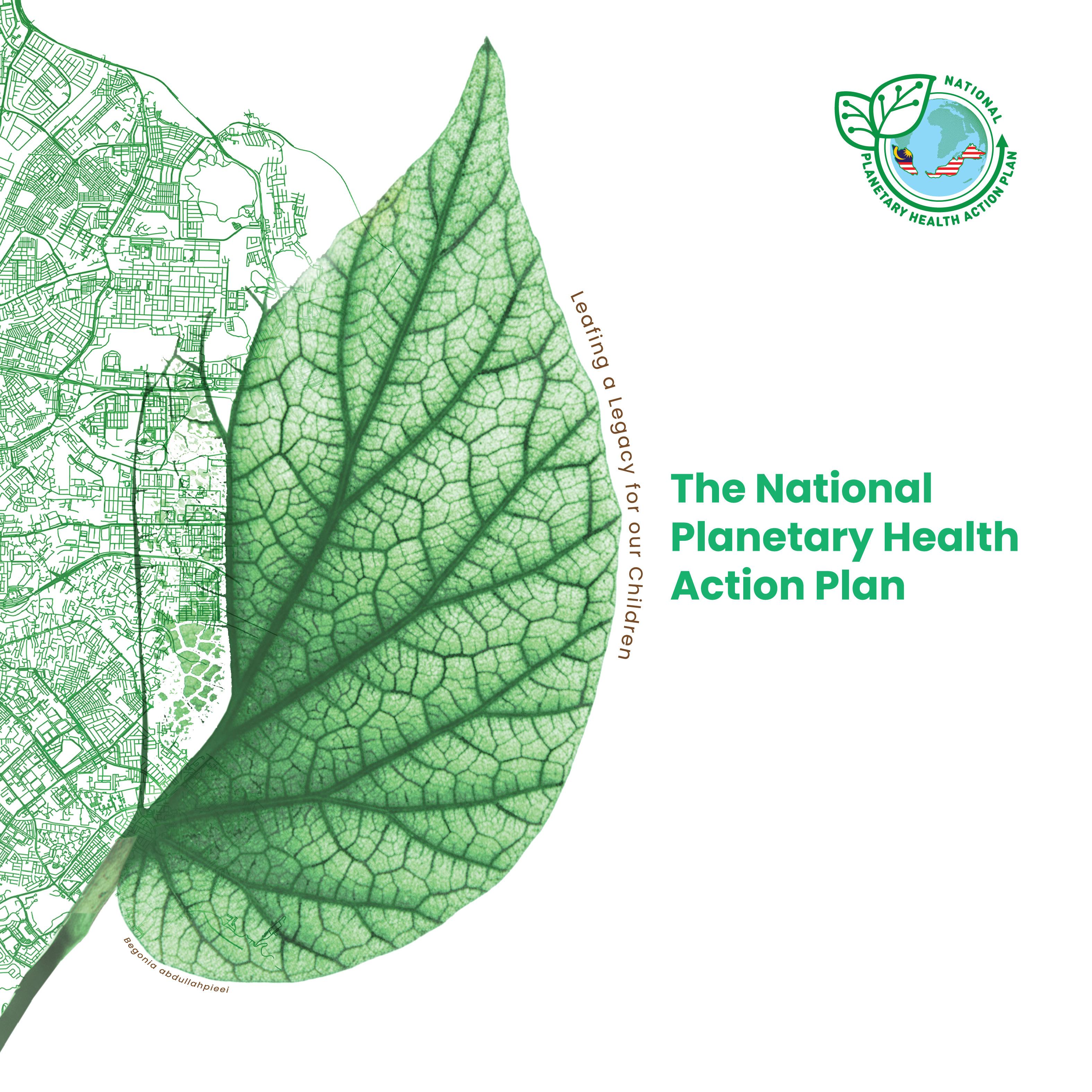

The National Planetary Health Action Plan (NPHAP)
EXECUTIVE SUMMARY



Cover design
Begonia abdullahpieei
Inspired by the Begonia abdullahpieei leaf and Kuala Lumpur City map is one of the many threatened endemic begonias in Peninsular Malaysia. It is geographically rare and is a narrow endemic species confined to a single locality in Perak. At the local scale, however, this handsome plant occurs abundantly, adorning the dull, slippery rocks of the swift and fast-flowing waterfalls.
Source: Malaysia Biodiversity Information System (MyBIS)
The National Planetary Health Action Plan
©Academy of Sciences Malaysia 2025
All Rights Reserved
No part of this publication may be reproduced, stored in a retrieval system, or transmitted in any form by any means, electronic, mechanical, photocopying, recording or otherwise without prior permission in writing from the Academy of Sciences Malaysia.
Academy of Sciences Malaysia
Level 20, West Wing, MATRADE Tower
Jalan Sultan Haji Ahmad Shah off Jalan Tuanku Abdul Halim 50480 Kuala Lumpur, Malaysia
www.akademisains.gov.my
Malaysia National Planetary Health Action Plan (NPHAP)Realigning Development with Planetary Health and the Sustainable Development Goals
• Transformational Principles for Whole-of-Nation Approach
• The Six Mission
• A New Development Logic: From Return
• From Vision to Action
• Key Result Area 1: Governance
• Key Result Area 2: Environment and Health
• Key Result Area 3: Sustainable Food
• Key Result Area 4: Research and Education
• Key Result Area 5: Energy Transition
• Key Result Area 6: Values, Cultural Shift of Society, Behavioural
•
• What Action Looks Like
• Institutional Priorities
• Societal Commitments



YAB Dato Sri Anwar Ibrahim Prime Minister of Malaysia
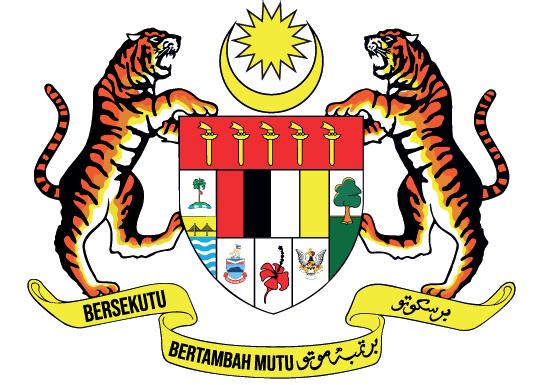
The development of the National Planetary Health Action Plan (NPHAP) marks a defining moment in Malaysia’s journey toward a sustainable future. At a time when global challenges like climate change, biodiversity loss, environmental pollution and health threats transcend borders, we must reaffirm our commitment to ensuring planetary health. The wellbeing of our nation is dependent on the health of the planet that sustains us.
Guided by our shared values of sustainability, innovation, trust and compassion, the NPHAP complements existing national policies such as the 13th Malaysia Plan, the National Policy on Climate Change and the National Energy Transition Roadmap. It acts as a catalyst, blending relevant strategies within a coherent, sciencebased framework that advances planetary and human health.
By pursuing a whole-of-government and whole-of-society approach, the NPHAP invites the public and private sectors, civil society, academia and local communities to unite in the service of a common purpose. It sends out the message that no one is left behind and that progress must be both ambitious and inclusive.
At the heart of this action plan lies our commitment to science, technology and innovation (STI). NPHAP is integral in driving Malaysia toward a low-carbon and knowledge-based economy, and STI is the key enabler in accelerating the transition to renewable energy and green infrastructure as well as harnessing data analytics for health monitoring and climate resilience. This action plan powers the development of technologies, products and services to generate prosperity while safeguarding our planet.
Let the NPHAP stand as a bold testament to Malaysia’s leadership in championing planetary health. The decisions we make today will shape the world our children inherit. So let us proceed with courage, collaboration and our collective values.
Congratulations to the Ministry of Science, Technology and Innovation, the Academy of Sciences Malaysia and all other collaborators for their success in crafting this plan. Together, let us ensure that a healthy planet become the foundation for a thriving and just Malaysia for all.
Foreword
YB Tuan Chang Lih Kang Minister of Science, Technology and Innovation Malaysia
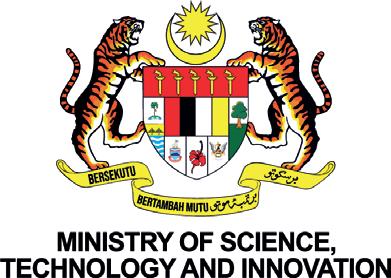
The National Planetary Health Action Plan (NPHAP) marks an important milestone in Malaysia’s commitment to safeguarding both human well-being and the health of our planet. As world faces grand challenges due to climate change and rising health threats, the call for integrated, science-based solutions has never been greater.
Malaysia’s journey toward a sustainable future is anchored in the principles of Malaysia MADANI, the Sustainable Development Goals (SDGs) and the aspirations of the 13th Malaysia Plan (13th MP). The NPHAP builds on these foundations, providing a comprehensive framework that aligns planetary health with national development priorities. It calls for a whole-of-nation approach, recognising that progress demands collaboration across government, industry, academia, and communities.

Science, technology, and innovation (STI) will be the driving force behind this transformation. From climate-resilient infrastructure and clean energy technologies to data-driven decision-making and scientific solutions, STI offers the tools to address complex, interconnected planetary health challenges. The NPHAP reflects Malaysia’s vision to leverage STI not only as an enabler of economic growth but as a catalyst for resilience, equity and environmental stewardship.
As we move toward 2030, the global race for green and digital transformation intensifies. Malaysia is proactively fostering a robust research and innovation ecosystem, nurturing talent for the future and mainstreaming planetary health interventions across all sectors. This Action Plan underscores the importance of future-proofing our economy while ensuring that no one is left behind.
I commend the Academy of Sciences Malaysia and all stakeholders who contributed their expertise and passionately developed the NPHAP. The NPHAP is more than an action plan - it is a call to action for every Malaysian to play their part in creating a healthier, safer and more sustainable future. Together, let us seize this opportunity to lead by example, harnessing science and innovation for the well-being of people and planet.
Foreword






















YM Academician Datuk Dr Tengku Mohd Azzman Sharifadeen FASc
President, Academy of Sciences Malaysia
&
STI Advisor to the Prime Minister and the Nation
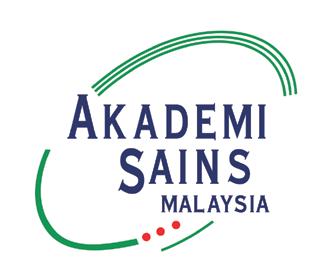
The Academy of Sciences Malaysia (ASM) is honoured to present the National Planetary Health Action Plan (NPHAP). This is a bold and timely framework to guide Malaysia’s whole-of-nation response to the converging challenges of the Anthropocene era, where human activity is reshaping the future of both people and planet.
We are living in a defining moment. Climate disruption, biodiversity loss, and pollution of air, water and soil are destabilising ecosystems. At the same time, societies face widening inequality, rapid urbanisation, ageing populations and recurring public health crises. Too often, we have normalised profit over purpose, the overexploitation of resources, and short-term gains over long-term resilience. These patterns of behaviour must be denormalised and replaced with legitimate norms that promote balanced stewardship, fairness and shared responsibility for the sake of future generations.
Addressing these challenges requires collaboration. No single discipline, sector or institution can act alone. The NPHAP was therefore co-created through partnerships across government, academia, business and civil society. It is anchored to four guiding principles: humanity-centric approaches that place people at the heart of development; science-, technology- and innovation-enabled solutions that guide true transformation; nature-based approaches that work with rather than against ecosystems; and values-internalised change that embeds responsibility, fairness and sustainability into everyday decisions.
Based on these principles, the Action Plan sets out practical pathways for change. It aims to transform governance, align development with sustainability, reimagine how we produce and consume, and reshape behaviours and mindsets. By linking environment and health, strengthening accountability, and ensuring that well-being and resilience are central to progress, the plan turns vision into measurable action. This is where the NPHAP will make a difference: by moving Malaysia beyond incremental improvements towards systemic transformation that safeguards people, protects the planet, and secures long-term prosperity.
Malaysia is well positioned to lead. Our rich biodiversity, cultural heritage, scientific expertise and commitment to inclusive development provide a strong foundation to demonstrate how growth can support both people and planet. Yet we must also confront the trilemma of balancing economic growth, social equity and environmental protection. The NPHAP offers a pathway to resolve this challenge, proving that prosperity, fairness and sustainability can advance together.
NPHAP is more than a guide. It is a national mission and a global statement of intent, an invitation to act together with foresight, integrity and compassion to protect the future of humanity and the planet we call home.
Academician Professor Emerita Datuk
Dr Asma Ismail FASc
National Planetary Health Action Plan (NPHAP)
Chairperson Malaysia
Preface


The National Planetary Health Action Plan (NPHAP) has been a collective journey—driven by urgency, shaped through collaboration, and grounded in shared responsibility. As Chairperson of this effort, I am grateful to the many individuals and organisations across Malaysia who contributed their knowledge, experience and hopes to build a vision of planetary health that reflects our national identity and priorities. This Whole-of-Nation framework carries the voices of more than 3,500 scientists, policymakers, civil society representatives, youth and business leaders, united by a shared vision and hope. I wish to especially acknowledge the dedication and support of the Pillar leads together with the research team and analysts whose expertise shaped this Plan, particularly Prof Dr Mahendhiran Sanggaran Nair FASc, Prof Dato’ Ir Dr A. Bakar Jaafar FASc, Academician Distinguished Prof Datuk Dr Looi Lai Meng FASc, Prof Dr Noorsaadah Abd Rahman FASc, Prof Dato’ Ts Dr Kamaruzzaman Sopian FASc, Prof Dato’ Dr Zulkifli Idrus FASc, and Prof Tan Sri Dr Jemilah Mahmood; whose leadership provided the intellectual foundation that made this Plan possible.

Malaysia stands at a decisive turning point. Environmental pressures and health risks are converging to strain our food, water, energy and social systems, showing clearly that our current development model can no longer deliver a secure or sustainable future. Planetary health provides a powerful lens to connect human well-being with environmental integrity. It is not a new science, but a new way of linking human health, animal health and environmental health. We cannot afford to sacrifice any one for the other. With every year of delay, the risks deepen—economic losses grow, health costs rise, and our children’s futures become more insecure. If we act now, we can restore ecosystems, transition to clean energy, reduce emissions, enhance food security and build greater resilience. If we wait, the damage may become irreversible.
What sets this Plan apart is that it does not replace past policies; it connects and amplifies them. Where past strategies often implemented in silos, the NPHAP aligns actions across government, business, academia and society, embedding science, technology and innovation at its core. It is guided by the 8i Enabling Framework, infrastructure, infostructure, intellectual capital, integrity, incentives, institutions, interaction and internationalisation anchored in the 8R planet-friendly values of respect, rethink, reduce, reuse, recycle, replant, repurpose and revitalise. From this, five systemic shifts emerged: stronger governance of our natural Khazanah, nurturing people and leadership, advancing planet-friendly businesses, fostering values and behaviour change, and mobilising sustainable financing.
The hardest challenge is changing mindsets and behavioural habits. Planetary health may seem abstract, but if every Malaysian takes one proactive action like wasting less food, reducing energy use, supporting planet-friendly businesses; the collective impact across 32 million Malaysians can shape markets, cut pollution and lower costs. This Plan makes such choices easier, more affordable and doable, while investing in leadership and national campaigns to turn sustainability from a duty into a source of pride. As we step into this historic moment, let us be guided by the wisdom often attributed to Native American wisdom: “We do not inherit the Earth from our ancestors; we borrow it from our children.”














Malaysia at a Turning Point –Why Building a Nation That Thrives Within Planetary Boundaries Matters





Malaysia is approaching a decisive moment in its development journey. Environmental pressures such as climate change, biodiversity loss, pollution, unsustainable land-use change, resource depletion, and extreme weather are intensifying. These challenges intersect with health risks, demographic shifts, economic shocks, and geopolitical instability, straining vital systems such as food, water, energy, healthcare, education, and governance.
The costs are already visible. Between 1956 and 2023, disaster-related losses exceeded RM5.8 billion, with nearly one-fifth occurring in the last three years. Premature deaths from air pollution, unsafe water, extreme heat, and workplace toxins are rising, now accounting for most environmental welfare costs. Globally, 2025 Planetary Health Check shows seven of the nine planetary boundaries have already been breached (Figure 1), with ocean acidification breaching the safe zone for the first time.
Economic growth has lifted millions out of poverty, but at the cost of widening inequality, degraded ecosystems, rising non-communicable diseases, and growing vulnerability to shocks. Malaysia’s development model has focused narrowly on short-term financial returns. Without regard for ecological limits or equity, this model is no longer viable. What is needed is not incremental reform, but a systemic shift; one that redefines progress by placing the health of people and the planet at its centre, ensuring prosperity that is fairly shared, ecologically sustainable, and resilient.
This realisation builds on years of evidence generated by Academy of Sciences Malaysia (ASM), from Position paper of Climate Change, Science Outlook 2020, Strategic Paper on Precision Biodiversity and Position Paper on Zoonosis research. Together, these studies pointed to a single conclusion: the urgent need for an integrated, systemic approach.


Figure 1 – Planetary Boundaries Based on Sakschewski and Caesar et al. 2025, Richardson et al. 2023, Steffen et al. 2015, and Rockström et al. 2009)
From Risk to Resilience: What Is Planetary Health and Why It Matters Now
Planetary health is the science, the policy, and the moral imperative of our time. It recognises that human wellbeing and the health of the Earth’s natural systems are inextricably linked, and that our future depends on maintaining that balance.
This approach presents an alternative to the “zero-sum” notion that progress for people must come at nature’s expense. Instead, it offers a new development logic, one that prioritises return on values (ROV). ROV is a forward-looking measure of success that places environmental stewardship, social cohesion and long-term resilience on equal footing with socioeconomic development growth1. It challenges governments, businesses, communities and individuals to rethink how we design cities, grow food, generate energy, govern institutions and define prosperity.
For Malaysia, this reframing is not abstract. It is central to our nation’s national interests. Our natural heritage, its forests, coasts, rivers, biodiversity and traditional knowledge, forms the foundation of its ecological security and economic potential. If we do not act now to safeguard this khazanah, we will undermine our capacity to deliver high quality jobs, healthcare, education and opportunity to future generations.

Nair, M.S., Ahmed, P.K. and Vaithilingam, S. (2022). Planetary health and sustainable socio-economic development: An ecosystem approach. Sunway University. Updated Version: March, 2024 Available at: https://sunwayuniversity.edu.my/sites/default/files/documents/2024-10/planetary_health_and_sustainable_socio-economic_development_an_ecosystem_approach.pdf, [Accessed 26 Jul. 2025]
BOH Plantations, Cameron Highland

The Malaysia National Planetary Health Action Plan (NPHAP)
- Realigning Development with Planetary Health and the Sustainable Development Goals


Building on this realisation, the NPHAP is Malaysia’s strategic blueprint created to embed planetary health at the heart of national development. It recognises that human wellbeing and economic progress ultimately are inseparable from thriving natural systems, and it provides the roadmap to balance ecological realities with social and economic priorities. As the first of its kind in ASEAN, and among the most comprehensive planetary health strategies globally, the NPHAP positions planetary health as both a national commitment and a contribution to the global community.

The NPHAP emerged through national dialogue and broad cross-sector collaboration, guided by a systems thinking approach that reflects the SDG logic: a healthy economy depends on a just society, and both rely on a thriving biosphere. Built on Malaysia’s own data, grounded in rigorous analysis, and shaped through a ten-step engagement process involving hundreds of stakeholders, scientists, policymakers, community leaders, young people, private sector actors, and civil society voices. The Plan reflects the best of national evidence and is informed by global best practice.



The SkyBridge Langkawi
The NPHAP adopts the widely recognised SDG (Sustainable Development Goals) “wedding cake” model (Figure 2), first proposed by the Stockholm Resilience Centre, which shows that a healthy economy depends on a fair society, and both depend on a thriving biosphere2
Biosphere Goals (the base):
SDG 6 (Clean Water and Sanitation), SDG 13 (Climate Action), SDG 14 (Life Below Water), SDG 15 (Life on Land) – these are the ecological foundations on which all life and development depend.
Societal Goals (the middle layer):
Goals related to health, education, equity, peace and strong institutions, such as SDG 1 (No Poverty), SDG 3 (Good Health and Wellbeing), SDG 5 (Gender Equality), SDG 11 (Sustainable Cities), and SDG 16 (Peace, Justice and Strong Institutions).
Economic Goals (the top layer):
SDG 8 (Decent Work and Economic Growth), SDG 9 (Industry, Innovation and Infrastructure), and SDG 12 (Responsible Consumption and Production), among others.
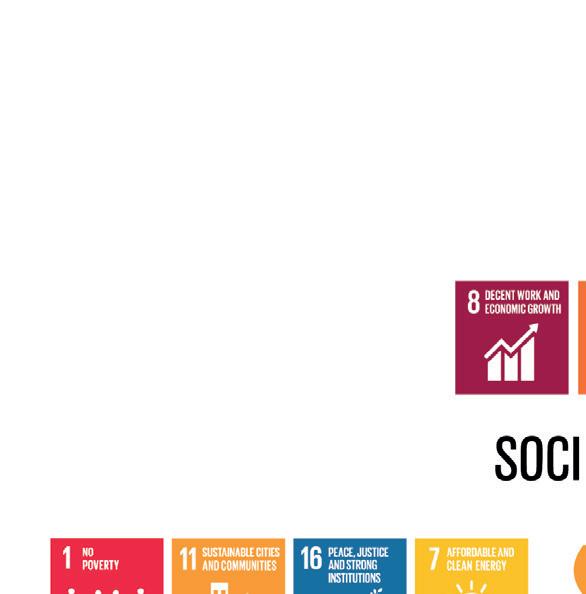
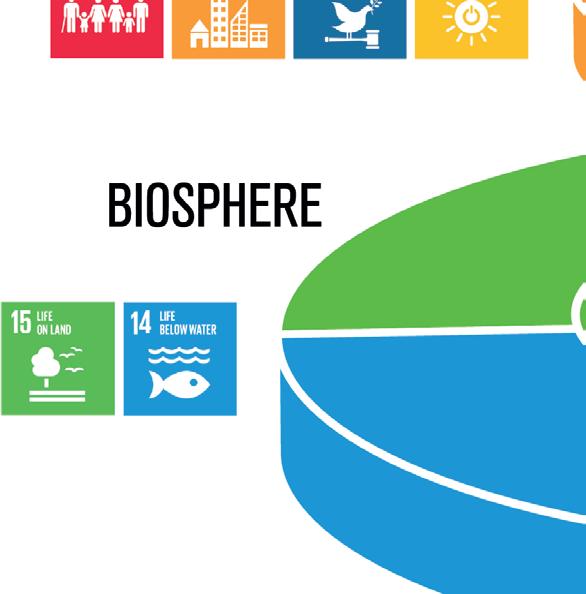
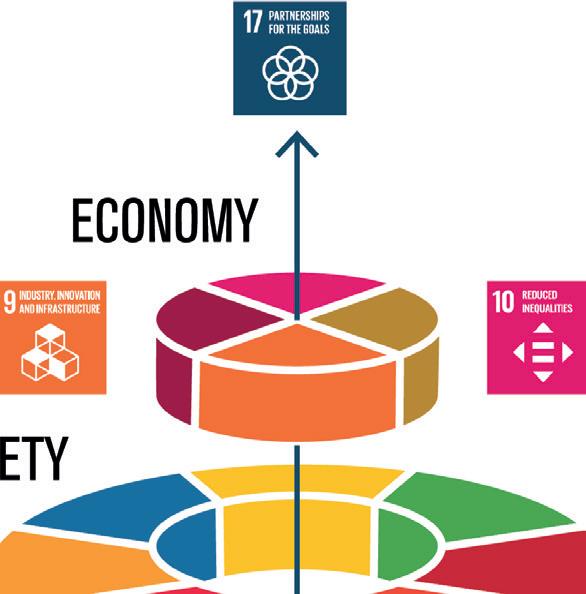
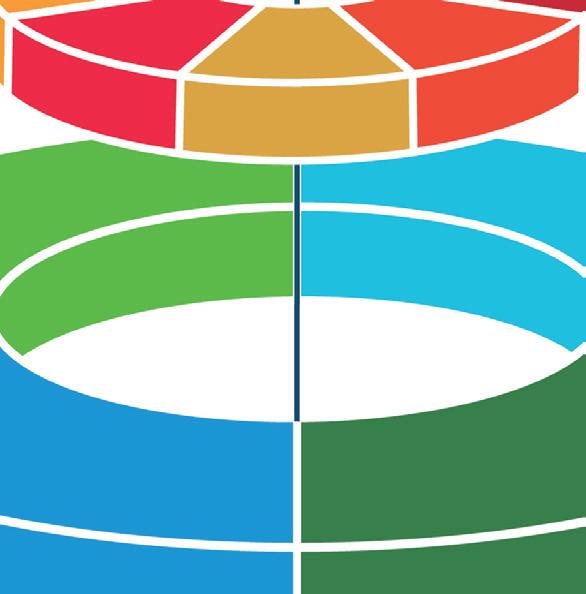
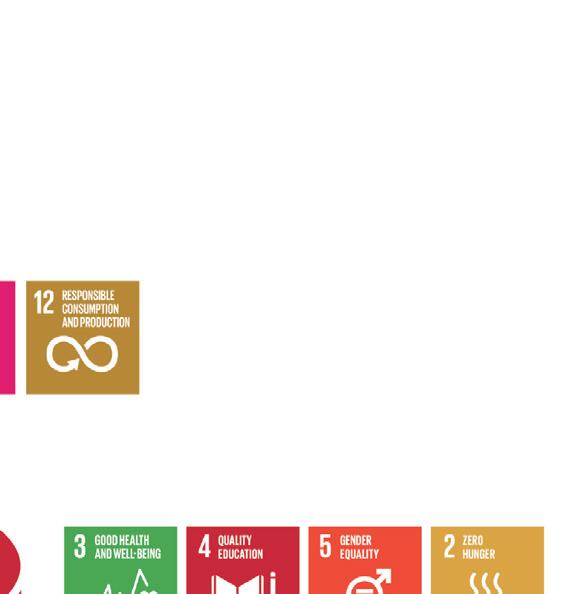
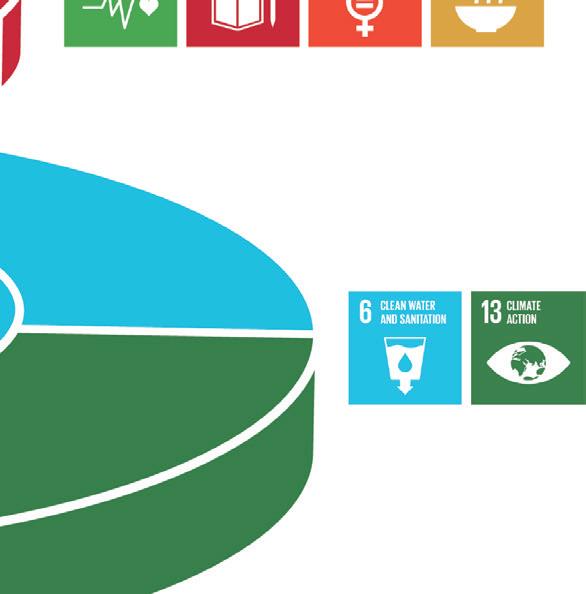
This model illustrates a simple truth: economies depend on societies, and societies depend on the biosphere. When nature is degraded, social wellbeing suffers. When social systems break down, economic progress falters. Planetary Health, as both a framing and a practice, brings this reality to the forefront of national planning.
Anchored in this logic, the NPHAP sets out six Key Result Areas (KRAs), each targeting a system at the intersection of ecological, social, and economic wellbeing. Together, they represent the transformations Malaysia must prioritise to ensure resilience, prosperity, and sustainability within planetary boundaries.
2 Biosphere Goals (the foundation): SDG 6 (Clean Water and Sanitation), SDG 13 (Climate Action), SDG 14 (Life Below Water), SDG 15 (Life on Land). Societal Goals (the middle layer): SDGs on health, education, equity, peace and institutions, such as SDG 1 (No Poverty), SDG 3 (Good Health and Wellbeing), SDG 5 (Gender Equality), SDG 11 (Sustainable Cities), SDG 16 (Peace, Justice and Strong Institutions). Economic Goals (the top layer) SDG 8 (Decent Work and Economic Growth), SDG 9 (Industry, Innovation and Infrastructure), SDG 12 (Responsible Consumption and Production).
Figure 2 – SDG “Wedding Cake”

Transformational Principles for Whole-of-Nation Approach
At its core, the NPHAP calls for a Whole-of-Nation transformation, grounded in four foundational principles:
Humanity-centric
Placing people, especially the most vulnerable, at the centre of every decision


Science, Technology, Innovation (STI)-enabled
Harnessing science, technology and innovation levers for resilience and sustainability.
Nature-based
Valuing ecosystems as critical infrastructure for health, security and wellbeing.

Values-internalised

Embedding universal spiritual values, ethics and intergenerational justice in all policy and planning.



Science, Technology and Innovation (STI) as an Enabler of Planetary Health
These principles can only be realised if backed by strong enablers. Among them Science, Technology and Innovation (STI) are powerful accelerators of the NPHAP’s planetary health agenda. When effectively integrated into policy and practice, STI can connect human health and ecological systems, driving faster and more sustainable progress for planetary health.
Priority areas where STI can play a supportive and strengthening role include:
Improving prediction and evidence-based decision-making through advanced data systems and AI. Data and Monitoring


Scaling nature-based and green technologies that advance sustainability and health. Technological Innovation
Fostering collaboration across science, policy, communities and business to co-create holistic solutions. Interdisciplinary Research

Embedding STI insights into national frameworks, ensuring inclusive, transparent and adaptive governance. Policy and Governance



Building partnerships for knowledge exchange, technology transfer and capacity-building, especially for vulnerable communities. Local and Global Collaboration

Gunung Mulu National Park, Sarawak
The Six Key Result Areas (KRAs)
Guided by these principles and enabled by STI, the NPHAP identifies six mission-critical areas where systemic change is most urgent. Each represents a cornerstone of Malaysia’s national system that must be transformed if the country is to thrive within planetary boundaries. Together they form the foundation for a Whole-of-Nation transformation:

Governance
Reforming institutions to coordinate, enforce and deliver planetary health outcomes at all levels.

Integrating ecosystem protection with preventive public health, pollution control and resilience to climate risk. Environment and Health

Transforming agriculture and food systems to enhance nutrition, equity and regenerative practices. Sustainable Food

Research and Education
Embedding planetary health into education and building Malaysia’s innovation capacity.

Energy Transition
Accelerating just a shift away from fossil fuels, catalysing clean energy systems and green jobs

Nurturing a national ethos of stewardship, informed participation and behaviour change. Values, Cultural Shift of Society, Behaviour Changes and Communication
Each KRA is underpinned by systemic shifts, sound strategies and measurable action plans, with lead agencies, implementation partners and indicators for tracking progress.
A New Development Logic: From Return on Investment to Return on Values
The NPHAP presents an alternative to the “zero-sum” notion that progress for people must come at nature’s expense. Instead, it offers a new development logic, one that prioritises Return on Values (ROV). ROV measures success by the shared environmental, economic, social, and political value created through naturecentric development.
The NPHAP is unique in its redefinition of success. Instead of measuring development solely through GDP or short-term financial return, it introduces a Return on Values (ROV) framework3,4. This evaluates development across four dimensions:
Dimension


on Values (ROV)
Protecting and restoring natural ecosystems and biodiversity
Creating resilient, planet-friendly industries and jobs

Reducing health risks, improving wellbeing and ensuring no one is left behind



Building accountable institutions, strengthening Malaysia’s leadership on sustainability and empowering local communities
Malaysia’s goal is to secure prosperity within a “safe and just space”, where ecological limits are respected and societal needs are met. This logic reframes development as a pathway to long-term resilience, fairness and shared prosperity.
3 Nair, M.S., Ahmed, P.K. and Vaithilingam, S. (2022). Planetary health and sustainable socio-economic development: An ecosystem approach. Sunway University. Updated Version: March, 2024 Available at: https://sunwayuniversity.edu.my/sites/default/files/documents/2024-10/planetary_health_and_sustainable_socio-economic_development_an_ecosystem_approach.pdf, [Accessed 26 Jul. 2025]
4 Nair, M.S., Ahmed, P.K. and Vaithilingam, S. (2022). Values-based development and competitiveness: A conceptual analysis. Institute for Global Strategy and Competitiveness, Sunway University, Malaysia. Available at: https://sunwayuniversity.edu.my/sites/default/files/d7/webuni/SU-2204-Sunway-Value-Based-Paper-Report-2022-FA-181222.pdf [Accessed 26 Jul. 2025]
From Vision to Action
The NPHAP is more than a strategic plan, it is a national commitment to change course. Its goal is to embed planetary health into daily life and national decision-making, ensuring that every policy, investment and innovation supports a future where people and planet thrive together. The Plan calls for:





Strengthening governance through a new national sustainability architecture, centred on the proposed National Sustainability Council (Majlis Kemampanan Negara), with mandate beyond 2030.
2 3 4
Driving Whole-of-Nation behavioural change, supported by a Transformational Sustainability Leadership Module (TSLM) to reshape leadership across public, private and community sectors.
Building intelligence systems, including a national Environmental Genomic Database Framework to strengthen environmental and health monitoring.



Creating robust accountability mechanisms, with an Impact Tracking Framework that measures ROV and adapts action in real time.
The NPHAP translates vision into implementable strategies, mobilising institutions, businesses, and communities to act with urgency.










The Six Mission Critical Key Result Areas (KRAs): Priorities, Challenges, Transformative Actions




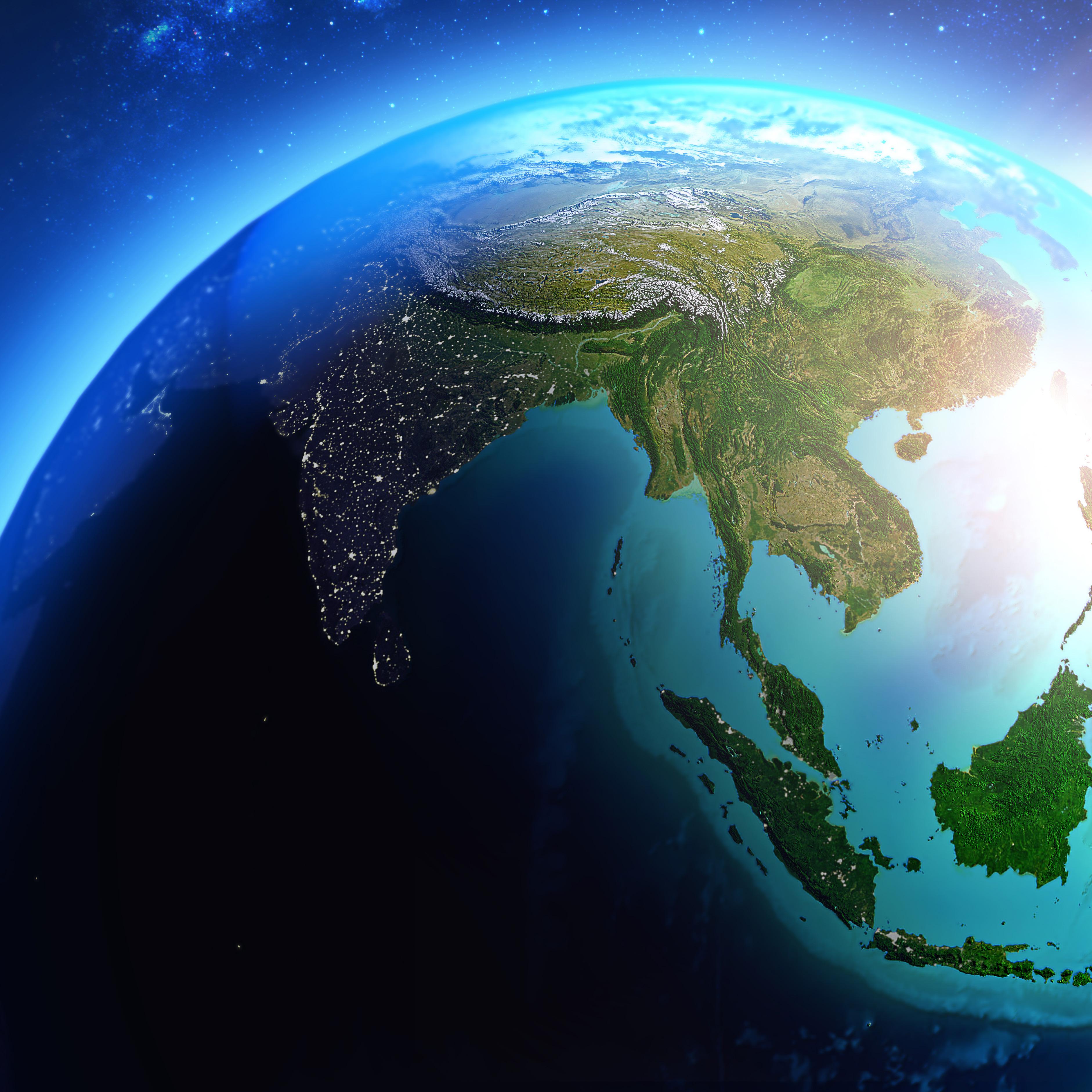
Systemic Shifts 5

The NPHAP is built around the six KRAs described above. They are also the mission-critical foundations for embedding planetary health into daily life and national decision-making. Each KRA focuses on a part of Malaysia’s national system that must be transformed to secure a healthier, more sustainable future for both people and planet, by each driving five systemic shifts required to make that transformation possible.
1
Strengthening the governance and management of the nation’s natural Khazanah
2
Nurturing people to lead a healthy, prosperous and values-driven nation
3
Advancing planet-friendly businesses
4
Driving effective communication, behavioural change and values mindsets
5
Mobilising sustainable financing and resource
They cut across all six KRAs and define the levers of change needed for lasting impact. They also form the analytical basis for the mapping exercise that underpins this Plan’s recommendations.
The KRAs are shaped by national evidence, grounded in systems thinking, and aligned with the broader aim of maximising ROV across environmental, economic, social and political dimensions. Together, they form the core framework for Malaysia’s Whole-of-Nation transformation toward a healthier, fairer and more sustainable future.
The following sections outline each KRA, explaining the challenges they address, the transformations they propose, and the strategic actions needed to drive lasting change.
Khazanah
Khazanah is a Malay word of Arabic origin, meaning “treasure”. The same word can also be found in many other languages and carries the same meaning.

An aerial view of Genting Sempah along the highway to the East Coast
Key Result Area 1: Governance
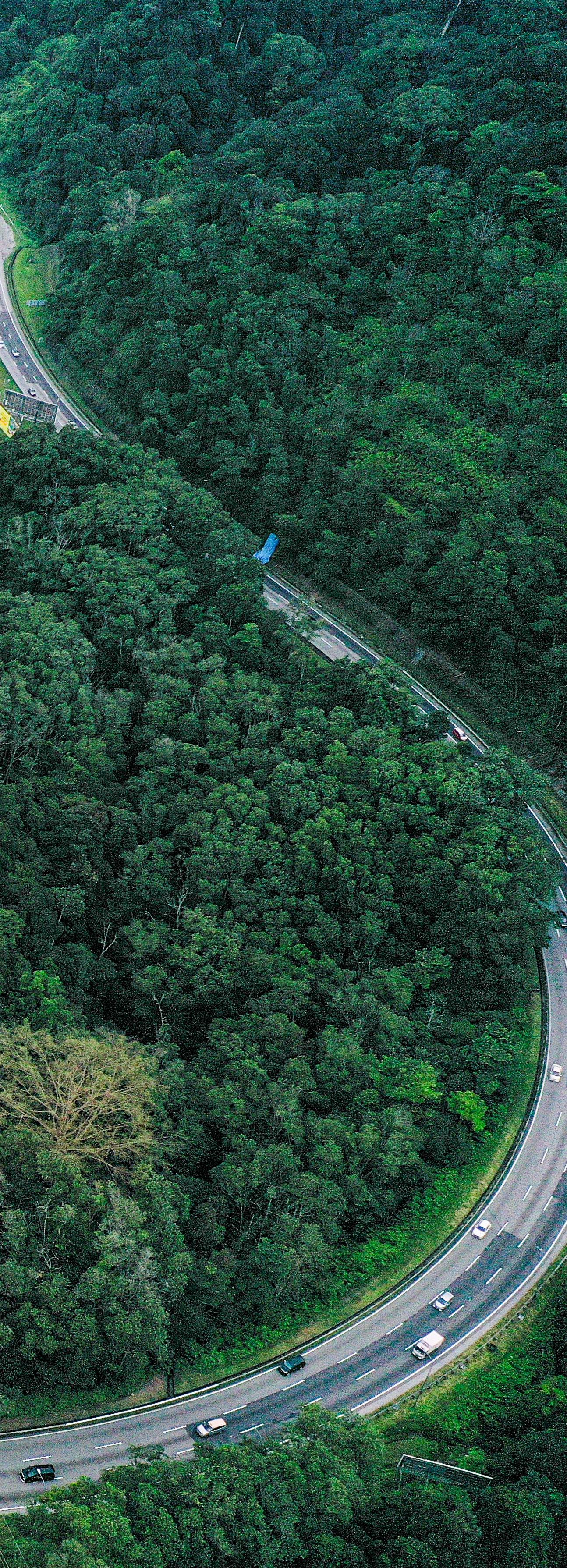
The Challenge – Why it matters?
Malaysia’s governance landscape faces challenges of fragmentation and siloed mandates, with limited coordination across federal, state, and local authorities, and across environmental, health, and development agendas. This can result in uneven enforcement, partial risk management, and gaps in achieving sustainability targets.
While institutions such as the National SDG Council, the Ministry of Economy (ME), and the Malaysian Green Technology and Climate Change Corporation (MGTC) have driven progress in specific areas, no single body currently has the authority to lead a comprehensive, Whole-of-Nation planetary health transformation. Strengthening data governance, standardizing monitoring, and integrating Return on Values (ROV) metrics into planning and budgeting will be essential to improving decision-making, accountability, and alignment across sectors.
The Strategic Transformation – The Goal
Malaysia must adopt a unified governance framework that embeds planetary health across all levels of government. This requires a shift from fragmented, short-term initiatives to a systems-based national delivery model.
At the centre of this approach is the National Sustainability Council (Majlis Kemampanan Negara) chaired at the highest political level, with a mandate extending beyond 2030. The Council will coordinate action across all Key Result Areas, ensure accountability, and guide science-based decision-making. Supporting the Council will be a dedicated Panel of Experts on Planetary Health, the SDGs, and ESG.
Local authorities will be empowered as frontline implementers, playing a critical role in resilience, biodiversity, and land-use governance. Together, this structure aims to align national priorities, strengthen oversight, and deliver long-term sustainable outcomes for people and the planet.
Key Action Priorities
Strengthening the Governance and Management of the Nation’s Natural Khazanah 1
• Proposed the establishment of the National Sustainability Council (Majlis Kemampanan Negara), strengthen legal frameworks for planetary health, SDGs and ESG, and strengthen enforcement transparency.
2
Nurturing People to Lead a Healthy, Prosperous and Values-Driven Nation
• Institutionalise behavioural economics to support planetary health, empower vulnerable communities, strengthen education and training, and foster collaboration across research, development, innovation, commercialisation and economy (RDICE).
3
Planet-Friendly Businesses
• Expand public–private–community partnerships to build a dynamic planetary health governance system, strengthen green procurement and certification, and align planetary health, ESG and SDG standards.
4
Effective Communication, Behavioural Change and Values Mindsets
• Mobilise government agencies, government-linked companies (GLCs) and public research institutions to promote planetary health aligned behaviours, backed by coordinated communications campaigns and advocacy.
5
Sustainable Financing and Resourcing
• Create dynamic financing mechanisms, public-private partnerships, and incentive-driven sustainability programmes.

From Challenges to Co-benefits
Malaysia’s ability to deliver on planetary health hinges on its capacity to govern in new ways. This means:
Thinking long-term, beyond political cycles
Acting across silos, with integrated planning and delivery
Empowering implementation, especially at local levels
Grounding decisions in science and values
Measuring what matters, with clarity and public transparency
If governance reforms are delayed, Malaysia risks ongoing fragmentation, uneven enforcement, weak accountability, and missed opportunities for sustainable growth. Conversely, successful implementation of these proposals could yield transformative benefits:


Economic
Policy continuity and investor confidence for green growth.

Environmental Social Political

Stronger protection of ecosystems as national assets.
More inclusive decision-making and fairer outcomes, particularly for vulnerable communities.
Greater accountability, trust in institutions, and stronger regional leadership.
KRA 1 underpins the entire NPHAP. Without governance reforms, systemic change will remain constrained. With effective reform, Malaysia can mobilise a Whole-of-Nation transformation, creating the conditions for the success of all five other KRAs.

Kg.Luanti tagal river,Sabah,Malaysia.
Tagal means ‘no fishing’ in local kadazan-dusun dialect
Key Result Area 2: Environment and Health

The Challenge – Why it matters?
Malaysia faces escalating environmental and public health risks. Pollution, illegal deforestation, unsustainable land use, and overexploitation of natural resources, are degrading ecosystems, accelerating biodiversity loss and weakening natural buffers against floods, droughts and other hazards. These environmental pressures increase the risk of zoonotic diseases and directly affect human health, particularly among vulnerable communities with limited access to healthcare and essential services.
Policymakers, businesses, and communities often lack the tools, data, and incentives to address the clear connections between environmental degradation, disease burden, and economic losses. Micro, small and medium enterprises (MSMEs) in particular face challenges in adopting environmentally responsible practices due to limited financing and regulatory uncertainty. Environmental health programmes remain chronically underfunded, leaving nature-based and community-led interventions underutilised.
The Strategic Transformation – The Goal
The NPHAP envisions integrated environmental and public health systems that reduce pollution, prevent disease, and strengthen resilience. Ecosystem restoration will be recognised as a cross-agency public health imperative. Robust, accessible data will guide decisions, long-term financing mechanisms will sustain environmental health programmes, and incentives will help businesses, especially MSMEs, transition to greener practices. Nature-based solutions and indigenous knowledge will be mainstreamed into policy and planning, ensuring environmental stewardship drives health, wellbeing and prosperity.
Key Action Priorities
Strengthening the Governance and Management of the Nation’s Natural Khazanah 1
• Strengthen environmental governance by establishing a high-level coordinating body that treats biodiversity as a national security priority, incorporates indigenous and local knowledge in policymaking, and enhances coordination between Federal and State governments.
Nurturing People to Lead a Healthy, Prosperous and Values-Driven Nation 2
• Expand education for sustainable development, implementing planetary health leadership programmes, and promoting entrepreneurship that supports planetary health goals.
Planet-Friendly Businesses 3
• Support MSMEs to adopt environmentally and socially responsible practices by raising awareness, training and innovation ecosystems.
4
Effective Communication, Behavioural Change and Values Mindsets
• Strengthen public understanding of planetary health through strategic communication and educations campaigns.
Sustainable Financing and Resourcing 5
• Expand sustainable financing mechanisms and resource mobilisation to support environmental and health interventions and the planetary health transition.

From Challenges to Co-benefits
Malaysia’s development goals cannot be fully realized without addressing the ecological drivers of disease, displacement, and inequality. The health and wellbeing of Malaysians depend not only on hospitals and vaccines, but also on healthy forests, rivers, clean air, sustainable land use, and robust local capacity to prevent and manage risks.
This Key Result Area calls for deep integration of health and environmental systems, anchored by:
Shared data and evidence-based planning
Coordinated governance across ministries and agencies
Nature-based solutions to strengthen resilience
Empowered local leadership
Proactive risk reduction strategies
Failure risks worsening health outcomes, rising economic costs from climate- and pollution-related damages, and further degradation of ecosystems. Conversely successful implementation offers transformative benefits:


Lower healthcare costs, higher productivity, and new opportunities in green industries

Economic Environmental Social Political

Protection and restoration of biodiversity and natural systems as critical national assets
Healthier, more resilient communities, especially among vulnerable groups
Stronger trust in institutions and greater global credibility as a sustainability leader
KRA 2 provides the ecological and health backbone of the NPHAP. Without integration of environment and health, Malaysia will remain reactive to crises. With it, the country can reduce risk, protect lives, and position itself as a regional leader in sustainable health and development.

Sekinchan’s paddy fields in Selangor
Key Result Area 3: Sustainable Food

The Challenge – Why it matters?
Malaysia’s food system is facing increasing pressure. Unsustainable farming practices are degrading soils and water, eroding biodiversity, and exposing communities to pesticides and pollutants — threatening long-term food security and ecological balance. Smallholder farmers, who form the backbone of production, often lack access to financing, technology and training, limiting productivity, perpetuating rural poverty, and discouraging youth participation in agriculture.
At the same time, Malaysia’s reliance on imported food exposes the country to global price shocks, currency fluctuations, and trade disruptions, undermining food security and increasing the national food import bill. Without action, these pressures risk deepening ecological damage, entrenching inequality, and weakening the resilience of the nation’s food system.
The Strategic Transformation – The Goal
The NPHAP envisions a nutrition-secure, equitable, and regenerative food system; one that restores ecosystems, supports farmer livelihoods, and delivers positive health outcomes for all Malaysians. Regenerative farming, circular agriculture, and climatesmart technologies will become the standard rather than the exception.
The system will be reoriented to reduce malnutrition and non-communicable diseases, while diversifying local production to reduce reliance on imports. Farmers will be equipped with the knowledge, tools, and technology needed to thrive, fostering a new generation of skilled, values-driven food producers. In this vision, food becomes both nourishment for Malaysians, and regeneration of their land.
Key Action Priorities
1
Strengthening the Governance and Management of the Nation’s Natural Khazanah
• Reform planning and governance framework to align agriculture with planetary health objectives, and steward natural resources sustainably.
2
Nurturing People to Lead a Healthy, Prosperous and Values-Driven Nation
• Build human capacity through education, awareness, and skills development, and culturally grounded innovation, including indigenous practices.
3
Planet-Friendly Businesses
• Reform subsidies, regulate harmful chemical use and support corporate social responsibility (CSR) initiatives to incentivise sustainable agriculture.
4
Effective Communication, Behavioural Change and Values Mindsets
• Promote responsible consumption, train farmers in sustainable technologies, and using behavioural science to encourage healthier diets.
5
Sustainable Financing and Resourcing for Planetary Health Development Initiatives
• Introduce targeted financial products, incentivise sustainable practices and invest in infrastructure to strengthen local production.

From Challenges to Co-benefits
Malaysia’s long-term health and resilience depend on the transformation of its food system. Diets and nutrition are shaped not only by markets and imports, but also by the health of soils, forests, rivers, and local communities. The rise of malnutrition, obesity, and diet-related diseases is intertwined with the same ecological pressures driving soil degradation, water stress, and biodiversity loss.
This Key Result Area reimagines food as a foundation of planetary health, guided by four priorities:
Farmers empowered as stewards of biodiversity, innovation, and resilience
Children nourished by food that is safe, equitable, and locally produced
Circular solutions that return food waste to the land as a resource
Policies and investments aligned with nutrition, equity, and ecological renewal
A failure to reform will deepen reliance on imports, exacerbate ecological degradation, and widen nutrition and health inequalities. But If transformation succeeds, the co-benefits will be transformative:


Economic
More resilient local agriculture, reduced import bills, and competitive green exports

Environmental Social Political

Regeneration of soils, rivers, forests, and biodiversity through sustainable practices
Equitable access to safe, nutritious, and affordable food, particularly for vulnerable groups
Stronger food sovereignty, policy credibility, and Malaysia’s leadership in regional food security
KRA 3 reframes food as more than a commodity. A reformed food system can nourish people, restore ecosystems and build resilience, securing Malaysia’s wellbeing for generations to come.





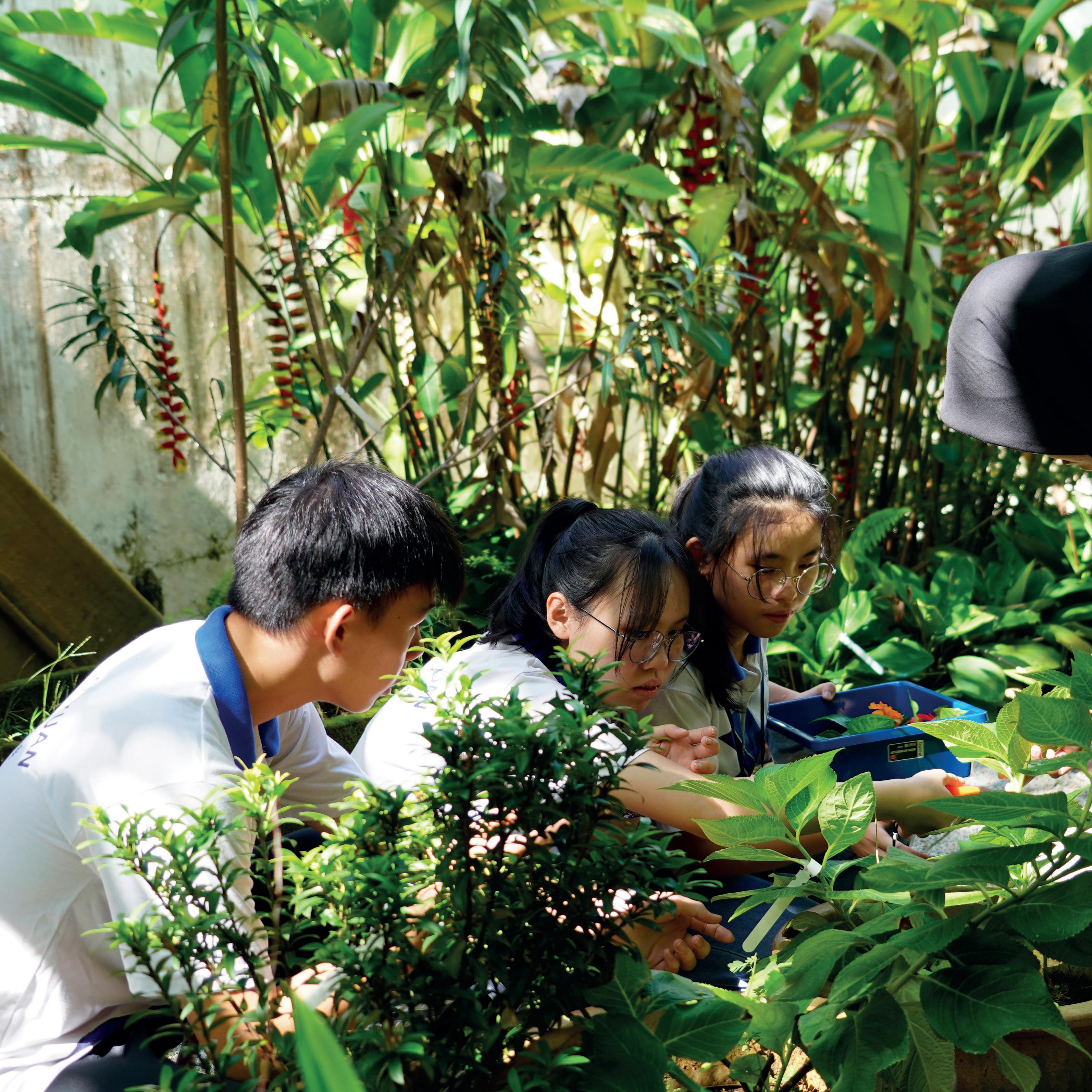
Young hands, big impact-nurturing trees, nurturing our future
Key Result Area 4: Research and Education




The Challenge – Why it matters?
Malaysia’s education, training and leadership ecosystems are not yet fully aligned with the demands of a planetary health transition. Fragmentation across institutions has led to uneven integration of sustainability and systems thinking. Curricula often lack local context, indigenous knowledge, and interdisciplinary approaches, while many educators are under-equipped to deliver planetary health as a crosscutting theme.
Public awareness of planetary health remains low, particularly among youth, local authorities, and civil society organisations, limiting participation, accountability, and support for transformative policy. Research and innovation efforts are often siloed, with limited alignment to community needs and national priorities. Leadership is another critical gap: too few leaders across government, academia, business, and civil society possess the interdisciplinary skills, systems perspective, and values-driven approach required to guide complex, long-term transitions.
The Strategic Transformation – The Goal
Research, education, and leadership are the key pillars of Malaysia’s planetary health transition. Curricula at all levels, from preschool to postgraduate, will embed systems thinking, planetary boundaries, indigenous and traditional knowledge, and the interconnections between environment and human health. Teachers, civil servants, journalists, and community leaders will be equipped to serve as champions of sustainability and agents of change.
Leadership development will be elevated as a national priority, with transformational programmes embedded across government, the private sector, and civil society to cultivate courage, integrity, foresight, and systems thinking. Research and innovation ecosystems will be reoriented to generate rigorous, socially relevant, and implementable solutions, co-created with policymakers, businesses and communities.
Key Action Priorities
Strengthening the Governance and Management of the Nation’s Natural Khazanah
• Expand planetary health literacy, build a national coordination hub to unify action and branding, and secure long-term financing for education and innovation. Nurturing People to Lead a Healthy, Prosperous and Values-Driven Nation
• Develop a Malaysian Standard for Planetary Health, incentivise business engagement in the RDICE ecosystem to drive innovation, and ensure transparent monitoring and reporting.
• Embed sustainability and systems thinking in education and training, strengthen RDICE governance to scale efforts, and foster cross-sector collaboration. Effective Communication, Behavioural Change and Values Mindsets
• Create a national strategy for planetary health communication and education, embedding systems thinking and building a shared identity, and incorporate rigorous monitoring and evaluation to drive lasting behavioural and institutional change.
Financing and Resourcing for Planetary Health Development Initiatives
• Establish a long-term financing roadmap to support education, training, research and innovation in planetary health.

From Challenges to Co-benefits
Research and education shape how Malaysians see the world, what they value, and how they act. Without a shift in how knowledge is produced, taught, and applied, progress in governance, health, food, and energy will fall short.
This KRA calls for transforming knowledge into a driver of systems change, anchored by:
Curricula that inspire action, not just understanding
Researchers who work across disciplines and alongside communities
Public servants equipped to lead systemic transformation
Young people empowered to innovate and demand better
If reforms stall, Malaysia risks continued fragmentation, low planetary health literacy, and a shortage of leaders equipped to guide systemic change. But if they succeed, the co-benefits will be transformative:


Economic
A skilled workforce driving innovation, green industries and circular development models

Environmental Social

Research that directly supports ecosystem restoration and climate resilience
More informed and empowered citizens, especially among youth and vulnerable communities
Political
Stronger leadership, credible institutions and global influence
KRA 4 is the backbone of Malaysia’s knowledge transition. By reshaping education, research and leadership, Malaysia can not only support but lead the planetary health agenda in the region.
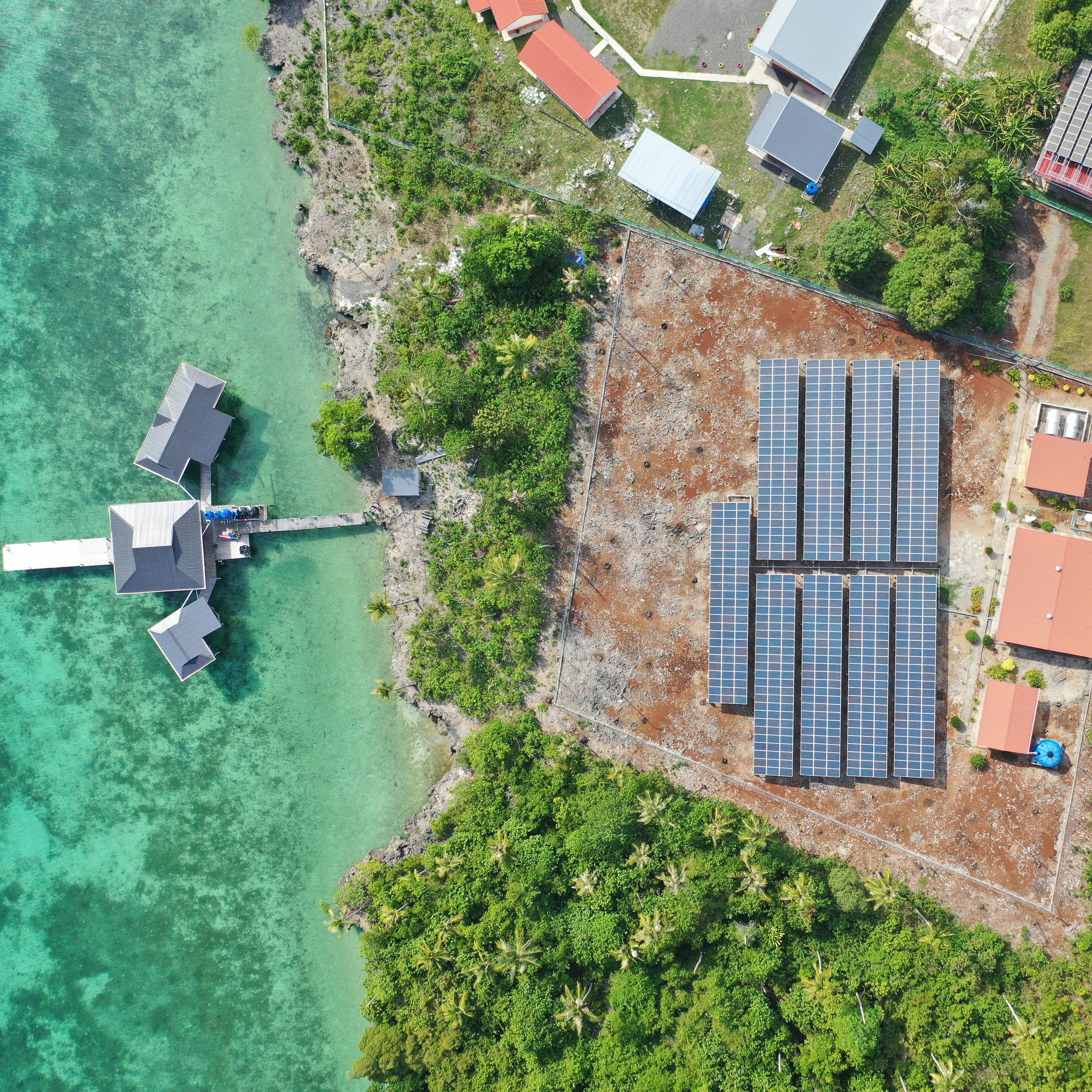
Aerial view of the solar panels at the remote island in Semporna, Sabah, Malaysia
Key Result Area 5: Energy Transition
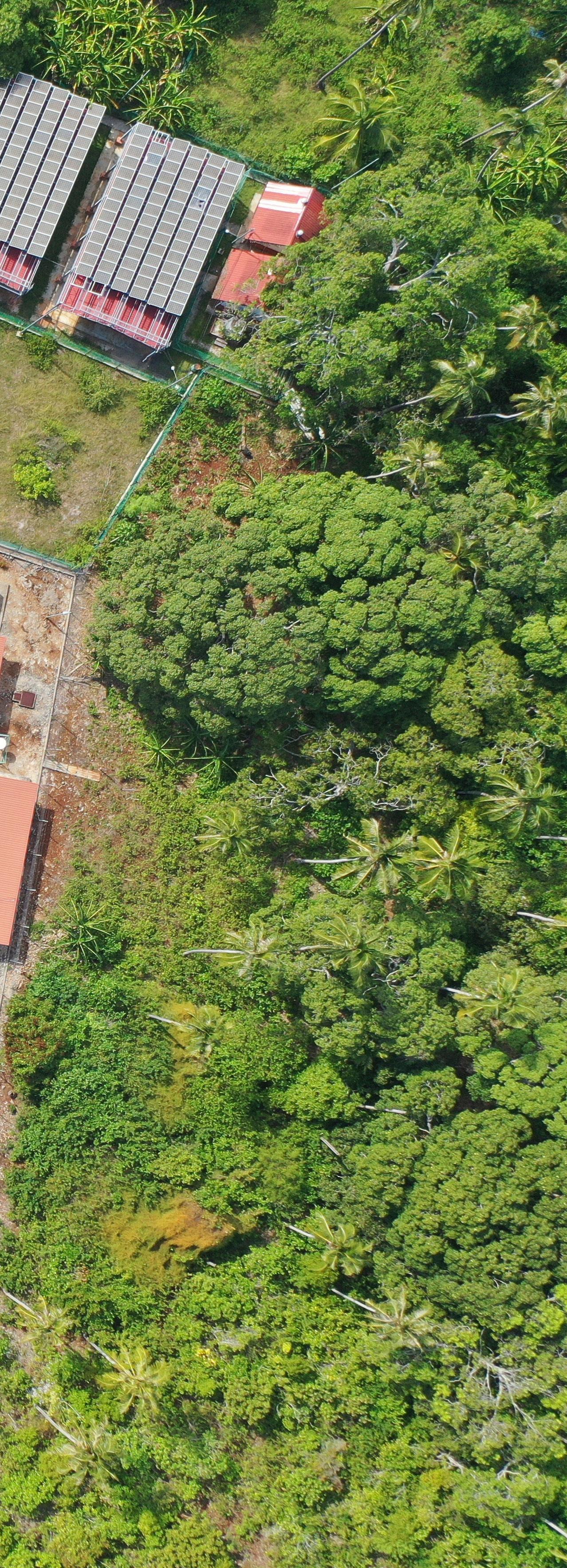
The Challenge – Why it matters?
Malaysia’s energy system is still overwhelmingly dependent on fossil fuels, which account for over 90 percent of primary energy supply and over 70 percent of electricity generation. The country is also among the world’s top ten fossil fuel subsidisers per capita, spending billions of ringgits annually on subsidies that disproportionately benefit wealthier households while slowing the shift to low-carbon innovation.
The National Energy Transition Roadmap (NETR), which targets 70% renewable energy capacity by 2050, sets an ambitious and forward-looking vision. While encouraging solution-oriented steps have already been taken, there remains scope for further improvement and support to ensure sustained progress. Challenges such as modernising grid infrastructure, strengthening investment incentives, enhancing regulatory clarity, and balancing the transition alongside existing energy realities must be addressed to unlock the full potential of reform. Communities in rural Malaysia continue to face electricity access issues, while low-income households nationwide struggle with rising energy costs. At the same time, Malaysia’s vast renewable energy potential remains underutilised, underscoring both the urgency and the opportunity for systemic reform.
The Strategic Transformation – The Goal
Malaysia must build a clean, just, decentralised, and resilient energy system. By 2050, fossil fuel reliance will be drastically reduced, replaced by renewables including solar, hydro, wind, and sustainable bioenergy supported by modernised grids, storage solutions, and digital technologies.
Coal will be phased out, energy efficiency improved, and demand flattened through smarter buildings, industries, and transport systems. This transformation will generate green jobs, cut emissions, strengthen economic competitiveness, and deliver significant health benefits through cleaner air. Reliable and affordable clean energy will also reduce energy poverty and inequality, particularly in underserved regions such as Sabah and Sarawak.
To succeed, Malaysia must reform fossil fuel subsidies, expand financing for renewables and efficiency, modernise infrastructure, and build strong public–private partnerships. The shift is not only an environmental necessity but also a governance, equity, and public health imperative.
Key Action Priorities
Strengthening the Governance and Management of the Nation’s Natural Khazanah
• Adopt clean energy technologies, strengthen supply chains, and position Malaysia as a regional clean energy leader. This includes fasttracking innovation, strengthening public awareness, and deepening regional collaboration to support a low-carbon future.
Nurturing People to Lead a Healthy, Prosperous and Values-Driven Nation 2
• Raise awareness of the health and environmental risks of fossil fuels and expand access to affordable, sustainable alternatives, including clean energy and public transport.
Planet-Friendly Businesses 3
• Use strategic communication to build public trust and inspire confidence in the energy transition, highlighting local success stories.
Effective Communication, Behavioural Change and Values Mindsets 4
• Use strategic communication to build public trust and inspire confidence in the energy transition, highlighting local success stories.
• Expand green financing, unlock capital at scale and strengthen capacity within the financial sector to accelerate investment in renewables. Sustainable Financing and Resourcing for Planetary Health Development Initiatives 5
From Challenges to Co-benefits
The energy transition is no longer a technical debate; it is a governance, equity, and public health imperative. The question is not whether Malaysia can afford to act, but whether it can afford not to.
This KRA calls for decisive action on energy, anchored by:
Reform, not retreat, on fossil fuel subsidies
Investment, not inertia, in clean infrastructure
Inclusion, not inequality, in access and benefits
Leadership, not lagging, in governance and innovation
Malaysia’s energy transition is not simply technical, it is a national transformation with far-reaching dividends. Failure risks worsening energy poverty, continued reliance on volatile fossil fuel markets, and lost competitiveness in the global low-carbon economy; success means that rewards are transformative:

Economic
Green jobs, investor confidence, and competitiveness in regional clean energy markets

Environmental
Lower emissions, cleaner air, and reduced ecological degradation

Fairer access to affordable, reliable energy

Greater credibility on climate leadership and stronger public trust in institutions

KRA 5 is the engine of Malaysia’s low-carbon future. With decisive implementation, it can cut emissions, improve health, generate inclusive growth and secure Malaysia’s position as a regional leader in climateresilient development.

Youth learning to care for the earth, one tree at a time
Key Result Area 6: Values, Cultural Shift of Society, Behavioural Changes and Communication

The Challenge – Why it matters?
Malaysia’s shift to planetary health is constrained by deep-rooted habits, short-term economic pressures and a development narrative centred on convenience and growth. Sustainability messages often fall short when they are not rooted in local values, cultural practices or spiritual beliefs.
Fragmented communication across government, media, and civil society has diluted impact, and the absence of a unifying national narrative limits public understanding of how planetary health connects to daily life and how individual actions contribute to systemic change. Public participation remains limited, especially among youth, indigenous peoples, and marginalised groups who are often excluded from decisionmaking. At the same time, misinformation and greenwashing spread faster than credible science, undermining trust in institutions.
The Strategic Transformation – The Goal
Malaysia must undergo a cultural transformation where planetary health becomes part of daily life and national identity. Values of stewardship, fairness and intergenerational responsibility will be embedded in policy, practice and communication. Trusted messengers, schools, religious institutions, youth groups, community leaders and media, will drive consistent, credible messages. Businesses will adopt genuine sustainability practices, not superficial branding, while disinformation will be countered by reliable, trusted institutions.
Key Action Priorities
1
Strengthening the Governance and Management of the Nation’s Natural Khazanah
• Embed planetary health into institutional mandates, and long-term policy frameworks.
2
Nurturing People to Lead a Healthy, Prosperous and Values-Driven Nation
• Build environmental literacy, empower youth as change agents, and support community-driven initiatives that localise sustainability practices.
3
Planet-Friendly Businesses
• Create a national “One-Stop Centre” to provide training, tools and certification, with a focus on MSMEs.
4
Effective Communication, Behavioural Change and Values Mindsets
• Establish a national behaviour change framework and deliver impactful public campaigns that normalise and mainstream sustainable lifestyles.
5
Sustainable Financing and Resourcing
• Build a robust communication ecosystem through strategic partnerships and long-term investment in capacity and infrastructure.

From Challenges to Co-benefits
The planetary health transition is not the responsibility of government alone; it is a shared national mission. The question is not whether Malaysians have a role to play, but whether the mission can succeed without everyone’s participation. This plan is not only about protection, but about regeneration — not just about limits, but about new possibilities for living, governing, and thriving differently.
This KRA calls for society-wide action, anchored by:
Policymakers who embed planetary health in every ministry and mandate
Businesses that align operations with long-term environmental and social value
Educators and researchers who equip future generations with the knowledge to lead
Communities and youth who inspire action, steward local environments, and shape tomorrow’s leadership
The values that shape society determine the future it builds. This pillar highlights that without public will, no plan — however technically sound — can succeed. If reforms stall, Malaysia risks persistent cultural resistance, misinformation dominance, and limited citizen participation in planetary health. But if they succeed, the cobenefits are transformative:

Economic
Stronger market trust through authentic sustainability branding

Social
Greater inclusion of youth, indigenous peoples and vulnerable groups in shaping national futures.

Environmental
Collective stewardship of ecosystems embedded in behavioural norms

Political
Improved trust in institutions, resilience against misinformation, and a unifying national identity built around planetary health.
KRA 6 is the cultural engine of the NPHAP. By reshaping values, narratives, and behaviours, Malaysia can mobilise society-wide action needed to secure a healthy planet and a healthy future for all.






Malaysia stands at a crossroads. The evidence is clear: the health of our people and the stability and strength of our economy cannot be secured without protecting the natural systems on which they depend. The National Planetary Health Action Plan is not just another policy document; it is a national commitment to change course before the window for action closes.




We face a choice: continue with business-as-usual, deepening inequality, degrading ecosystems and heightening risks for future generations; or embrace a bold new development path that delivers resilience, fairness and prosperity within planetary boundaries. The NPHAP serves as a guideline for governance structures, science, and cultural values needed to make this transformation possible.
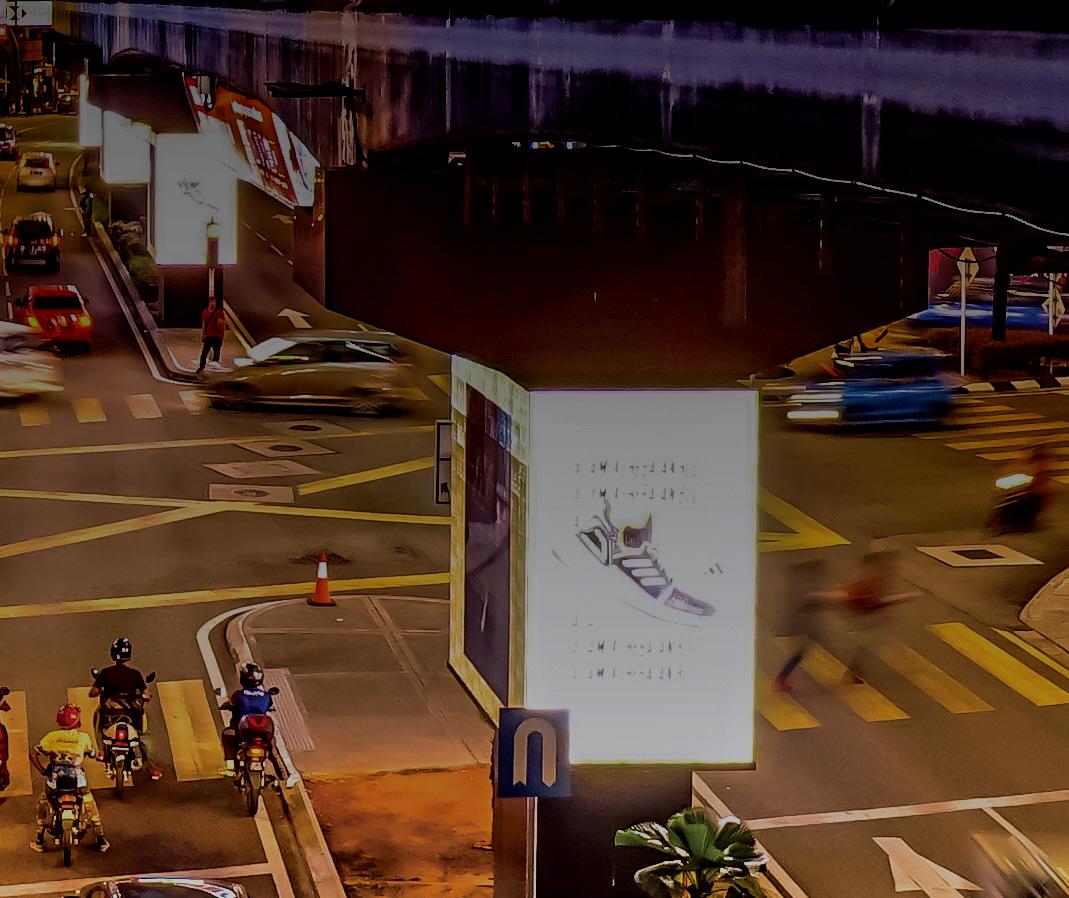






Bukit Bintang, Kuala Lumpur
What Action Looks Like
The NPHAP lays out a bold yet achievable roadmap. To bring it to life, Malaysia must act decisively in five areas:
Enable Direction, Stewardship and Enforcement –Strengthen Institutional Leadership
Strengthening institutional leadership is critical to ensure Malaysia can deliver on planetary health. The National Sustainability Council (Majlis Kemampanan Negara) can serve as the central platform to align sustainability priorities and carry forward SDG-related efforts beyond 2030. By clarifying mandates, improving cross-agency coordination, and drawing on expert advice, Malaysia can ensure coherent and effective delivery.
Drive Impact – Measure What Matters
GDP alone cannot capture true progress. The NPHAP introduces an Impact Tracking Framework to monitor development across four dimensions: environment, society, economy and politics. This system makes progress visible by tracking biodiversity, health outcomes, green jobs and public trust.
Key Mechanisms
Evolve the SDG Council into the National Sustainability Council; convene a Panel of Experts on Planetary Health, SDGs and ESG; embed ESG and STIE principles into national planning.
Key Mechanisms
Develop and publish national indicators for planetary health; integrate ROV metrics into performance systems at national and sector levels.
Build the Digital Architecture –Invest in Environmental Intelligence
Modern challenges demand modern tools. The NPHAP calls for a National Environmental Genomic Database Framework and linked data systems to monitor biodiversity, pollution and disease risks in real time. This intelligence will provide the evidence base for policies and rapid responses to emerging threats.
Key Mechanisms
Link genomic and geospatial data; connect with disaster response, health early-warning systems and land-use planning.
Shift Mindsets –Educate, Train, Communicate and Mainstream
Transformation must be cultural as well as institutional. The NPHAP highlights the need for a Transformational Sustainability Leadership Module (TSLM), a national behaviour change strategy and communication rooted in Malaysia’s diverse cultural and local traditions.
Key Mechanisms
Roll out TSLM across government and business; support community-led CEPAA platforms; embed planetary health into schools, universities and media.
Redefine Progress –Finance What We Value
Budgets, incentives and investments must align with long-term planetary health goals. This includes reorienting financial systems to support sustainable industries, scaling up blended finance for nature-based solutions, and rewarding firms and communities that deliver enduring social and environmental value.
Key Mechanisms
Introduce green tax reforms; expand ESG-linked financing; use innovative tools like catastrophe bonds, polluter-pays mechanisms and environmental dividends.
The Moment to Act
These five action areas provide the scaffolding; the question is not whether Malaysia can act, but whether we will act now. Implementing the NPHAP will create jobs, improve health, reduce risks, and protect Malaysia’s khazanah for future generations. Delay, however, will mean higher costs, greater risks, and lost opportunities. This is the moment for courage, vision, and unity.
The NPHAP is ambitious but achievable
It sets out
underpinned by strategies action plans core implementation mechanisms
Transformation Sustainability Leadership Module
Impact Tracking Framework
National Environmental Genomic Database Framework
Together they provide the institutional, cultural and technical capacity to deliver a Whole-of-Nation transformation.
Scan for more details




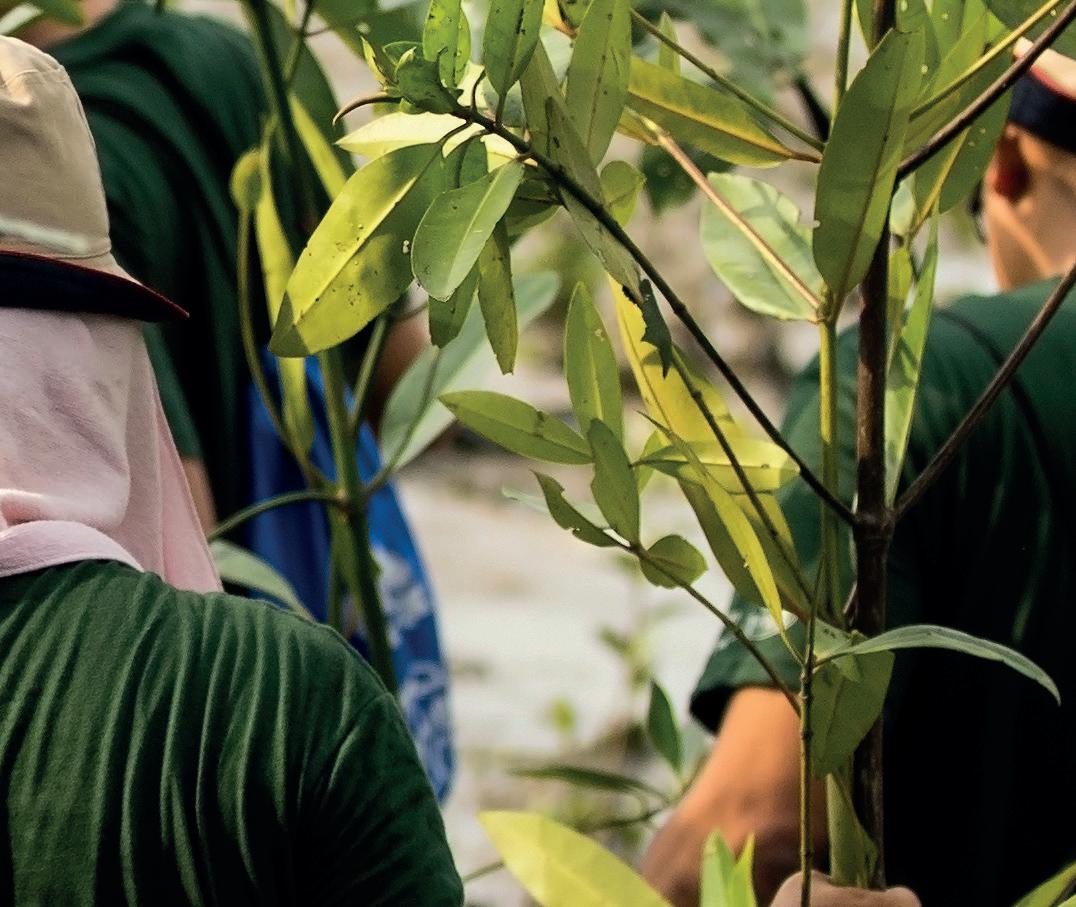







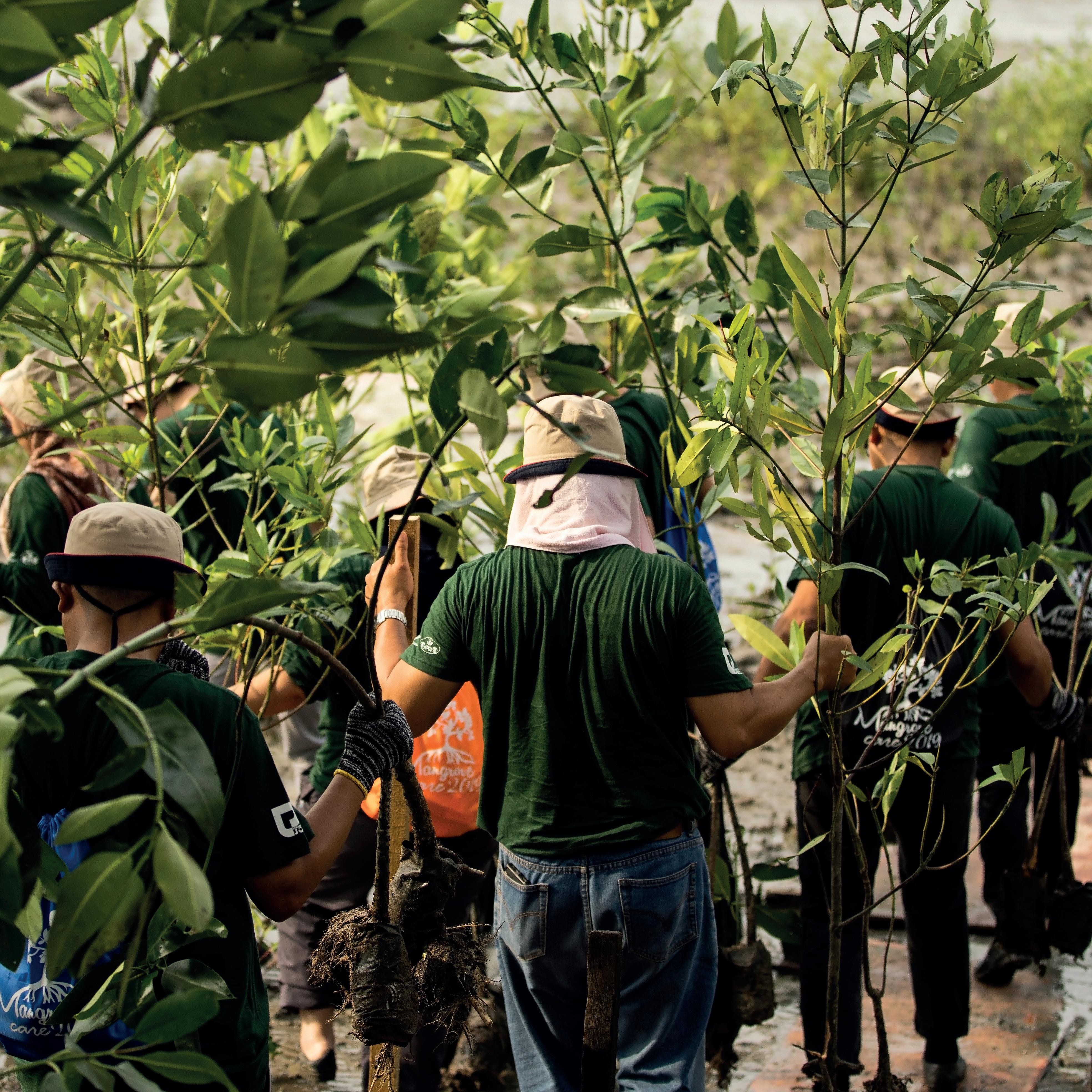
Initiate
Institutional Priorities
the National Sustainability Council (Majlis Kemampanan Negara) with cross-ministerial integration. Mandate and launch



























for each KRA, co-led by ministries and stakeholders Activate cross-sector implementation teams
across government agencies and private sector partners to track progress Pilot ROV-based reporting tools and behaviour change campaigns through Communication, Education, Public Awareness and Action (CEPAA) hubs to drive values-based behaviour change
Societal Commitments
Every Malaysian has a role in building a planetary health future:

























Policymakers
must integrate planetary health in every mandate
Educators and researchers
must prepare future generations with the knowledge to lead
Business leaders
must align operations with long-term social and environmental value
Civil society
must advocate, innovate, and hold institutions to account
Communities
must steward local environments through cultural and spiritual values
Youth
must inspire action, push boundaries, and shape tomorrow’s leadership
The NPHAP is about regeneration, not just protection. It opens new possibilities for living, governing and thriving differently.
A Legacy Within Reach
Malaysia has already shown regional leadership in biodiversity, health security, green growth and innovation. The NPHAP brings these strengths together into a coherent national framework that redefines progress for the 21st century.
Let this be our collective legacy:
A country that thrives within planetary boundaries












A Healthy Planet A Healthy Me A Prosperous Malaysia









An economy that generates prosperity through innovation, responsibility and care












A people who value health, fairness and ecological stewardship
This is more than a slogan. It is a commitment, a challenge, and an invitation to all Malaysians to lead the way forward. Let us build a Malaysia that thrives not despite its ecological limits, but because it respects and works within them.

Acknowledgement
Chair of National Planetary Health Action Plan
Academician Professor Emerita Datuk Dr Asma Ismail FASc
NPHAP Team Members
Framework and Integration
Prof Dr Mahendhiran Sanggaran Nair FASc (Chairperson) Sunway University
Dr Kishore Ravuri (Chief Writer) FrieslandCampina MY
Prof Pervaiz K Ahmed Sunway University
Prof Santha Vaithilingam Sunway University
Prof Ts Dr Ting Choo Yee
Multimedia University
Governance
Prof Dato’ Ir Dr A. Bakar Jaafar FASc (Chairperson)
Universiti Teknologi Malaysia
Dr Ibrahim Abu Ahmad (Writer)
Mr Satpal Singh Dillon PLUS Malaysia
Datin Seri Sunita Mei Lin Rajakumar Climate Governance Malaysia
Prof Dato’ Dr Aishah Bidin FASc
Mr Kiu Jia Yaw FASc Kiu & Co.
Prof Emeritus Dato’ ChM Dr Mazlin Mokhtar FASc
Datuk Fadilah Baharin FASc
Dato’ Dr Nadzri Yahaya Samaiden Group Bhd
Prof Emerita Datuk Dr Rashidah Shuib
Universiti Sains Malaysia
Dr David McCoy
United Nations University
Dr Chan Chee Khoon
Assoc Prof Dr Ooi Shih Yin
Multimedia University
Environment & Health
Academician Distinguished Prof Datuk Dr Looi Lai Meng FASc (Chairperson)
Universiti Malaya
Dr Ravigadevi Sambanthamurthi FASc (Writer)
Prof Dr Yvonne Lim Ai Lian FASc
Universiti Malaya
Dr Vivien How
Universiti Putra Malaysia
Prof Victor Hoe Chee Wai Abdullah
Universiti Malaya
Dr Rahimatsah Amat FASc
Dr Fiffy Hanisdah Saikim
Universiti Malaysia Sabah
Dato’ Halimah Hassan
Ts Raja Shazrin Shah Raja Ehsan Shah FASc
Galaxy Tech Solutions (KL) Sdn Bhd
Mr Mogesh Sababathy
Datuk Dr Abdul Rahim Nik FASc

Acknowledgement
NPHAP Team Members
Sustainable Food
Prof Dato’ Dr Zulkifli Idrus FASc (Chairperson)
Universiti Putra Malaysia
Ms Maizura Ismail (Writer)
Assoc Prof Dr Mohamad Faizal Ibrahim (Writer)
Universiti Putra Malaysia
Prof Dato’ Dr Aileen Tan Shau Hwai FASc
Universiti Sains Malaysia
Prof Dr Loh Teck Chwen FASc
Universiti Putra Malaysia
Dr Suresh Chandran Ecos Sensetech Sdn Bhd
Prof Datuk Dr Tengku Aizan Tengku Abdul Hamid FASc
Datuk Jeffrey Ng Choon Ngee Federation of Livestock Farmers Association of Malaysia
Dato’ Dr Jalaluddin Harun FASc
Prof Datuk Dr Mad Nasir Shamsudin FASc
Universiti Putra Malaysia
Academician Prof Dato’ Dr Ahmad Ibrahim FASc
UCSI
Energy Transition
Prof Dato’ Dr Kamaruzzaman Sopian FASc (Chairperson
Universiti Teknologi PETRONAS
Prof Dr Norasikin Ahmad Ludin (Writer) Universiti Kebangsaan Malaysia
Ts Dr Chantara Thevy Ratnam FASc
Mr Aizal Baharuddin PETRONAS
Prof Ir Dr Haslenda Hashim FASc Universiti Teknologi Malaysia
Prof Ir Ts Dr Zainuddin Abd Manan FASc Universiti Teknologi Malaysia
Ir Dr Suzana Yusup FASc Tenaga National Berhad
Dr Chan Hoy Yen
Ir Dr Norshah Hafeez Shuaib Malaysian Green Tech & Climate Change Corporation
Ms Ilham Fadilah Sunhaji Malaysia Petroleum Resources Corporation
Mr Abdul Shukor Hassan
Mr Dhana Raj Markandu
Research & Education
Prof ChM Dr Noorsaadah Abd Rahman FASc (Chairperson)
Dr Doria Abdullah (Writer) Universiti Teknologi Malaysia
Prof Emeritus Dr Nik Meriam Nik Sulaiman FASc
Prof Ir Dr Denny Ng Kok Sum Sunway University
Prof Datuk Dr Mohd Hair Bejo FASc Universiti Putra Malaysia
Mr Jaffri Ibrahim CREST
Dato’ Adnan Pawanteh
Prof Datuk Dr Azizan Baharuddin FASc Universiti Malaya
Ms Finaswani Mohamed Zin Loreal Malaysia
Prof Ir Dr Shaliza Ibrahim FASc Universiti Malaya
Assoc Prof Dr Noor Zalina Mahmood Universiti Malaya
Prof Ts Dr Shahrina Md Nordin FASc Universiti Teknologi PETRONAS
Prof Dr Poline Bala FASc Universiti Malaysia Sarawak
Values, Cultural Shift of Society, Behavioural Changes and Communication
Prof Tan Sri Dr Jemilah Mahmood (Chairperson) Sunway Centre for Planetary Health
Ts Raja Shazrin Shah Raja Ehsan Shah (Writer) Galaxy Tech Solutions (KL) Sdn Bhd
Mr Shawn Keng Teck Ee QIAGEN Biotechnology Malaysia Sdn Bhd
Assoc Prof Dr Chan Siok Yee
Assoc Prof Sr Dr Choong Weng Wai Universiti Teknologi Malaysia
Mr Aidil Iman Aidid WWF Malaysia
Ms Ushar Daniele South China Morning Post
Prof Adeline Johns-Putra Monash University
Mr Oliver Lacey- Hall Sunway Centre for Planetary Health
Ms Melissa Tan
Dr Nur Syafrina Mohd Sharif Novozymes Malaysia
Prof Mohd Said Bani C.M. Din Bzbee Consult Sdn Bhd
Hazami Habib, Chief Executive Officer
Nitia Samuel, Chief Strategy officer
Dharshene Rajayah, Chief of International Affairs and Communications
ASM Team of Analysts
Dr Hor Jia Wei
Teng Yu He
Ts Jagdish Kaur Chahil
Mohamad Hasril Abd Hamid
Norsyazlin Abd Rashid
Farah Amirah Mohd Nasri
Matthew Raj Alias
Muhamad Fahmi Isa
Nurdiana Ismail
Nor Azwa Musiran
Haikal Hikmal Hazam
Ratnamalar Rajasingam
Ng Yin Zhuang
Kausaalya Nagaraja
Ts Nurul Huda Abdul Rahman
Afifa Mahamad Saidi
Nur Alya Batrisya Ismail
Dr Wan Safiyyah Nurnajah Wan Ahmad Tajuddin
Farha Husna Ramli
Amira Aqilah Saidin
Nur Hidaayah Abu Hanifiah
Syamimi Md Jamal
Muhammad Afiq Rabani Main
Siti Nur Shahirah Wahab
Alfred Low Boon Sin
Creative & Production Team
Naina Afifi Rosly
Mohd Najmie Mohd Yusoff
Muhammad Akmal Hakim Mohamad
Najib Mohd Idris
Syakirah Nurizzati
Siti Sarah Rahman
Research Assistants
Khairunnisa Kadaruddin
Nur Syipa Nadhirah Abu Bakar
Fareed Farihin
Sunway University Analysts
Dr Teow Hui Hui
Yeng Hong Qing
Choong Chai Lim
Sudhan Mahalingam
